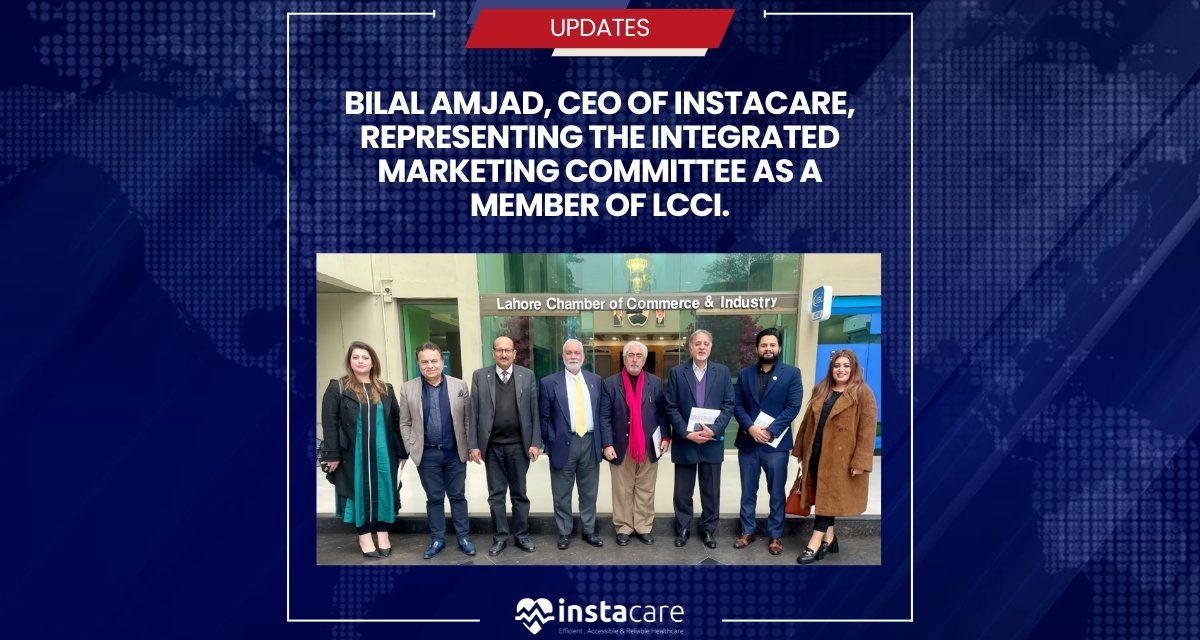Last updated on Thursday, 27, November, 2025
Table of Contents
Lahore Chamber of Commerce and Digital Health | Bridging the Gap for Innovation
The Lahore Chamber of Commerce and Industry (LCCI) is one of Pakistan’s leading trade organizations. It supports the business community by promoting economic growth, advocating for business interests, and driving industrial advancement. The LCCI fosters innovation and collaboration across various sectors, including the digital health landscape, where Instacare, a corporate member, plays a significant role.
How is Instacare Contributing to Digital Health through LCCI?
Instacare is an innovative leader in the health sector, offering a wide range of healthcare services through its telemedicine platforms. As a corporate member of LCCI, Instacare leverages its expertise in digital health to collaborate with other industry leaders, aiming to enhance healthcare accessibility and drive digital transformation within the healthcare industry.
What Role Does Bilal Amjad Play in LCCI?
Bilal Amjad, the CEO of Instacare, actively represents the Integrated Marketing Committee as a member of LCCI, contributing to the development of the healthcare sector in Pakistan. He works to promote digital solutions and advocate for modern healthcare systems within the business community.

His involvement reflects the growing importance of leveraging technology and innovation in the healthcare sector. By contributing to LCCI’s marketing strategies, he ensures that digital health solutions are highlighted and integrated into broader business discussions.
The Growing Significance of the Healthcare Industry in Pakistan
The rise of health technologies in Pakistan is not just a trend but a critical response to some of the country’s most pressing healthcare challenges. With a population exceeding 230 million, Pakistan faces significant gaps in healthcare accessibility, particularly in rural areas. Digital health services, including virtual consultations, health apps, and digital records, can help bridge these gaps by providing efficient, cost-effective, and timely healthcare services.
For instance, telemedicine enables patients in remote areas to consult qualified doctors without needing to travel, while e-prescriptions offer easy and reliable medication management. Digital health also has the potential to improve healthcare outcomes by promoting preventive care through health-tracking devices, empowering individuals to monitor their health closely and take early action to prevent diseases.



